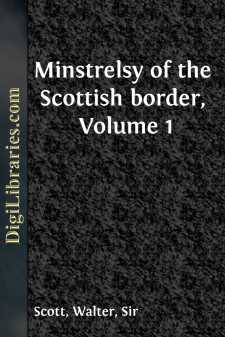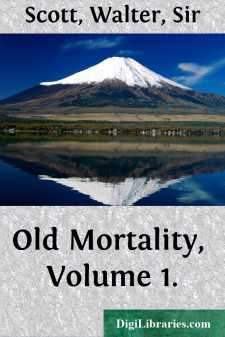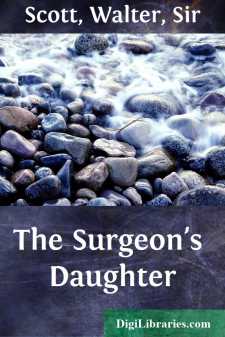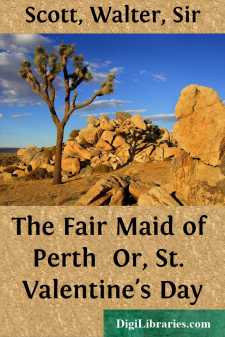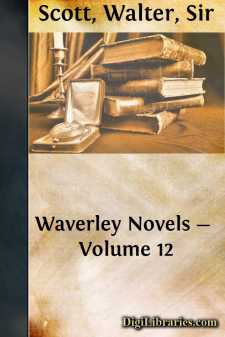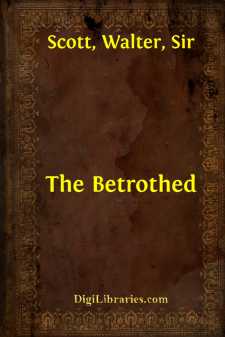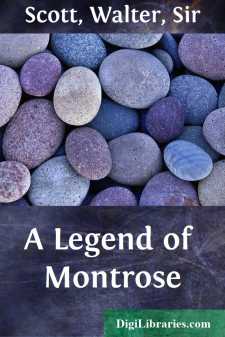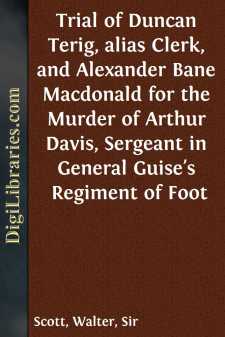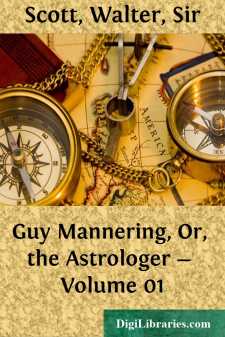Categories
- Antiques & Collectibles 13
- Architecture 36
- Art 48
- Bibles 22
- Biography & Autobiography 813
- Body, Mind & Spirit 142
- Business & Economics 28
- Children's Books 17
- Children's Fiction 14
- Computers 4
- Cooking 94
- Crafts & Hobbies 4
- Drama 346
- Education 46
- Family & Relationships 57
- Fiction 11829
- Games 19
- Gardening 17
- Health & Fitness 34
- History 1377
- House & Home 1
- Humor 147
- Juvenile Fiction 1873
- Juvenile Nonfiction 202
- Language Arts & Disciplines 88
- Law 16
- Literary Collections 686
- Literary Criticism 179
- Mathematics 13
- Medical 41
- Music 40
- Nature 179
- Non-Classifiable 1768
- Performing Arts 7
- Periodicals 1453
- Philosophy 64
- Photography 2
- Poetry 896
- Political Science 203
- Psychology 42
- Reference 154
- Religion 513
- Science 126
- Self-Help 84
- Social Science 81
- Sports & Recreation 34
- Study Aids 3
- Technology & Engineering 59
- Transportation 23
- Travel 463
- True Crime 29
Sort by:
by:
Walter Scott
INTRODUCTION. From the remote period; when the Roman province was contracted by the ramparts of Severus, until the union of the kingdoms, the borders of Scotland formed the stage, upon which were presented the most memorable conflicts of two gallant nations. The inhabitants, at the commencement of this aera, formed the first wave of the torrent which assaulted, and finally overwhelmed, the barriers of...
more...
by:
Walter Scott
The origin of "Old Mortality," perhaps the best of Scott's historical romances, is well known. In May, 1816, Mr. Joseph Train, the gauger from Galloway, breakfasted with Scott in Castle Street. He brought gifts in his hand,—a relic of Rob Roy, and a parcel of traditions. Among these was a letter from Mr. Broadfoot, schoolmaster in Pennington, who facetiously signed himself...
more...
by:
Walter Scott
In the old Stock of Fife, there was not perhaps an individual whose exertions were followed by consequences of such a remarkable nature as those of Davie Duff, popularly called "The Thane of Fife," who, from a very humble parentage, rose to fill one of the chairs of the magistracy of his native burgh. By industry and economy in early life, he obtained the means of erecting, solely on his own...
more...
by:
Walter Scott
CHAPTER I. "Behold the Tiber," the vain Roman cried,Viewing the ample Tay from Baiglie's side;But where's the Scot that would the vaunt repay,And hail the puny Tiber for the Tay? Anonymous. Among all the provinces in Scotland, if an intelligent stranger were asked to describe the most varied and the most beautiful, it is probable he would name the county of Perth. A native also of any...
more...
by:
Walter Scott
Sir Walter Scott transmitted from Naples, in February, 1832, an Introduction for CASTLE DANGEROUS; but if he ever wrote one for a second Edition of ROBERT OF PARIS, it has not been discovered among his papers. Some notes, chiefly extracts from the books which he had been observed to consult while dictating this novel, are now appended to its pages; and in addition to what the author had given in the...
more...
by:
Walter Scott
The Tales of the Crusaders was determined upon as the title of the following series of the Novels, rather by the advice of the few friends whom, death has now rendered still fewer, than by the author's own taste. Not but that he saw plainly enough the interest which might be excited by the very name of the Crusaders, but he was conscious at the same time that that interest was of a character which...
more...
by:
Walter Scott
It has long been the ambition of the present publishers to offer to the public an ideal edition of the writings of Sir Walter Scott, the great poet and novelist of whom William Hazlitt said, 'His works are almost like a new edition of human nature.' Secure in the belief not only that his writings have achieved a permanent place in the literature of the world, but that succeeding generations...
more...
by:
Walter Scott
I. INTRODUCTION TO A LEGEND OF MONTROSE. The Legend of Montrose was written chiefly with a view to place before the reader the melancholy fate of John Lord Kilpont, eldest son of William Earl of Airth and Menteith, and the singular circumstances attending the birth and history of James Stewart of Ardvoirlich, by whose hand the unfortunate nobleman fell. Our subject leads us to talk of deadly feuds, and...
more...
by:
Walter Scott
INTRODUCTION. Although the giving information concerning the unfair manner in which they were dismissed from life, is popularly alleged to have been a frequent reason why departed spirits revisit the nether world, it is yet only in a play of the witty comedian, Foote, that the reader will find their appearance become the subject of formal and very ingenious pleadings. In his farce called the Orators,...
more...
by:
Walter Scott
INTRODUCTION The Novel or Romance of Waverley made its way to the public slowly, of course, at first, but afterwards with such accumulating popularity as to encourage the Author to a second attempt. He looked about for a name and a subject; and the manner in which the novels were composed cannot be better illustrated than by reciting the simple narrative on which Guy Mannering was originally founded;...
more...


